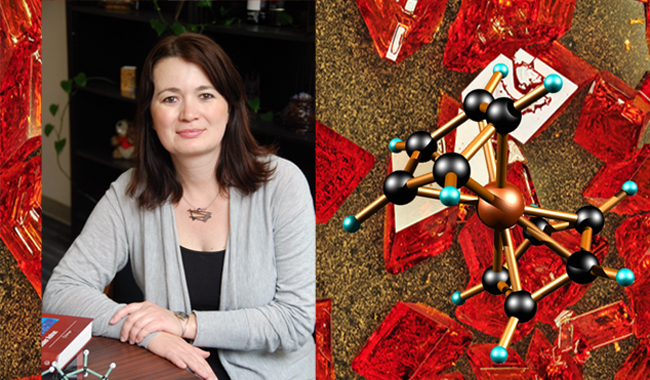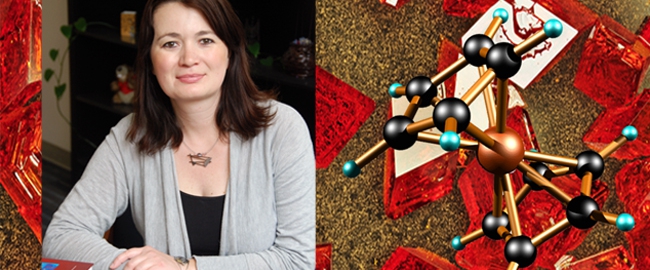Chemist Paula Diaconescu to lead new NSF Center for Integrated Catalysis

Professor Paula Diaconescu leads the Center for Integrated Catalysis with the goal to mimic biological systems in development of synthetic chemical catalytic processes.
The National Science Foundation announced a five year, $1.8 million award to establish the NSF Center for Integrated Catalysis (CIC), effective Sept. 1. The center is led by Paula Diaconescu, a UCLA professor of chemistry and biochemistry.
Diaconescu said the inspiration for the research conducted in CIC comes from nature’s remarkable ability to construct structurally complex products by combining different processes. Synthetic chemists, in contrast, usually run each chemical reaction individually. The goal of the CIC is to mimic biological systems in the development of synthetic chemical catalytic processes.
The center will develop the fundamental chemistry needed to prepare synthetic plastics in a single reactor using spatially separated and switchable catalysts. Simple starting materials will be used to supply networks of multiple catalysts operating together on a single platform, with the aid of temporal and spatial control, to produce new polymeric materials.
Switchable catalysts can be activated or deactivated as needed using external stimuli, such as light or electrochemical potential. The center’s research may lead to new materials that are sustainable and degradable and are of high complexity for commercial uses.
The center will host monthly seminars, including sessions on business and entrepreneurship topics, as well as chemistry and other scientific topics.
A goal of the center is to ensure the recruitment and retention of underrepresented minorities in the center’s research and activities. Students will be trained in interdisciplinary collaborative chemistry, including students who are underrepresented in the sciences.
Chong Liu, UCLA assistant professor of chemistry and biochemistry, who holds the Jeffery and Helo Zink Development Chair, is among the faculty members of the center.
This article was originally published by the UCLA Dept. of Chemistry and Biochemistry.




